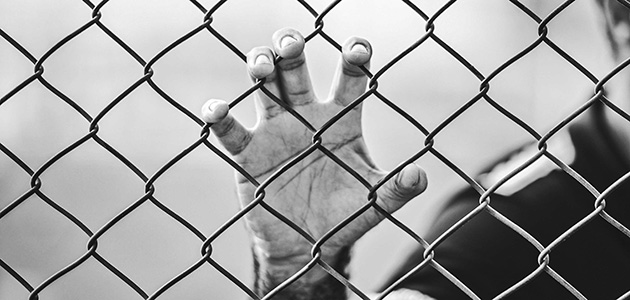‘Reports describe diminishing “purposeful activity”, squalor, violence and self-harm.’
Melanie Jameson reflects on Prisons Week

This week, Prisons Week, we are encouraged to think about those connected with the criminal justice system. I have had many years’ contact with this system, as tutor, trainer, visitor and reformer.
Few people outside the sector are aware of this April’s reforms. Governors have been ‘empowered’ to become commissioners of services. This includes identification and support for prisoners with conditions such as dyslexia (my particular area of interest). Technology is to be more important, to ensure that people leave prison with IT skills, but providing the necessary infrastructure in older establishments is a huge challenge. Furthermore, a more punitive rhetoric has been resurfacing since Priti Patel took over the Home Office when Boris Johnson became prime minister.
The rhetoric around the recent spending review is all about ‘10,000 additional prison places’ and ‘increased security and mobile phone detection’, aiming to restrict the availability of psychoactive drugs. This does nothing to address the issues identified by the prison inspectorate. Their reports describe diminishing ‘purposeful activity’, squalor, violence and self-harm. It is obvious to me that the uptake in drug use is linked to failures to provide meaningful ways of ‘doing time’.
One item in the review provides some hope: probation funding to help reduce reoffending and improve post-custody supervision. This conceals the massive U-turn – and multi-million pound price tag – linked to the ill-conceived ‘Transforming Rehabilitation’ initiative, when Probation Trusts were dismembered and private companies bid for the rehabilitation of short-sentence prisoners.
My monthly visits always feel like stepping into another world. I enter a community with very different norms. Amid the constant clanging of keys my first impression is always the starkness of the environment. I am escorted across yards and along corridors until, finally, I emerge in a classroom to join the group of men who have chosen to participate in Quaker-led worship.
‘Friendly Fridays’ begin when we shake hands around a beautiful oak table and candleholder carved by one of our members. Some bend to smell the flowers on the table, since there are no plants of any sort – even grass – visible from their blocks. We always have to wait for the various categories of prisoner to arrive. When we are finally assembled the chaplain welcomes us and we hold anyone with special needs in the Light, then we sink into silence with occasional contributions. Concluding by joining hands, when a unique rhythm passes for several minutes, we join in refreshments and conversation. Some stay for more Quaker study. This opportunity to trust and be trusted, to show and reciprocate kindness, to share the concerns of others and look beyond the limitations of daily life, must surely do more for rehabilitation than any government scheme.
Details of Prisons Week, with prayer suggestions, are at https://prisonsweek.org.
You need to login to read subscriber-only content and/or comment on articles.
